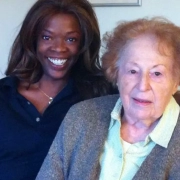Understanding Medical and Legal Power of Attorney for Elderly Seniors
Understanding Medical and Legal Power of Attorney for Elderly Seniors
As people age, there often comes a time when they might need assistance with medical and financial decisions due to physical or cognitive decline. A medical and legal power of attorney (POA) is crucial for elderly seniors, ensuring their preferences are honored and they receive appropriate care. At Premier Caregiving Services, we regularly see clients in the Louisville and surrounding areas who either have these documents in place or come to need them during the course of our care. Here’s a general description of the characteristics of these important documents, which, useful as they may be, should not be taken as legal advice.
What is a POA?
Medical Power of Attorney (Health Care Proxy): This legal document grants a trusted individual (the agent) the authority to make healthcare decisions on behalf of the senior (the principal) if they become incapacitated or unable to make decisions themselves.
Legal (Financial) Power of Attorney: This document authorizes an agent to handle financial matters for the principal. This can include managing bank accounts, paying bills, handling investments, and making other financial decisions.
When to consider getting one?
The timing of establishing a POA is critical:
- Early Planning: It’s best to establish a POA while the senior is still mentally competent and can clearly express their wishes and understand the implications of the document. Early planning ensures that there are no complications if an emergency arises.
- Before a Decline: Setting up a POA before any significant cognitive or physical decline is advisable. This proactive approach prevents stress and confusion during a crisis and ensures that the senior’s wishes are documented.
What are they used for?
Medical POA:
- Decision Making: Allows the agent to make informed medical decisions that align with the senior’s values and preferences.
- Continuity of Care: Ensures seamless and continuous care when the senior can no longer communicate their wishes.
- Reduces Burden: Relieves family members from the stress of making difficult healthcare decisions without guidance.
Legal POA:
- Financial Management: Ensures that bills are paid, investments are managed, and financial obligations are met even if the senior is incapacitated.
- Prevents Financial Abuse: By appointing a trusted agent, it helps protect the senior from financial exploitation.
- Ease of Transactions: Allows for efficient management of financial affairs without court intervention.
Do I need a POA?
- Cognitive Decline: Conditions like Alzheimer’s or other dementias necessitate the need for someone to make decisions on behalf of the senior.
- Medical Emergencies: Unexpected medical issues can render a senior unable to make decisions, making a medical POA crucial.
- Legal and Financial Affairs: To avoid court-appointed guardianship, which can be time-consuming and costly, having a legal POA in place is essential.
- Family Dynamics: Clearly defined POAs can prevent conflicts among family members by specifying who has the authority to make decisions.
Additional general characteristics
Medical POA:
- Durability: It remains in effect even if the principal becomes incapacitated.
- Scope: It can be broad or limited, depending on the principal’s preferences. It can cover general healthcare decisions or be specific to certain types of care.
- Agent Selection: The agent should be someone the principal trusts implicitly, who understands their healthcare preferences and is capable of making difficult decisions.
Legal POA:
- Durable vs. Non-Durable: A durable POA remains in effect if the principal becomes incapacitated, whereas a non-durable POA does not.
- General vs. Limited: A general POA grants broad powers to the agent, while a limited POA restricts the agent’s authority to specific tasks or time periods.
- Springing POA: This type of POA only goes into effect under certain conditions, such as the incapacitation of the principal.
- Revocability: Both medical and legal POAs can be revoked by the principal at any time, provided they are still competent.
Establishing a medical and legal power of attorney is an essential part of planning for elderly seniors. These documents provide peace of mind, ensuring that the senior’s healthcare and financial decisions are handled according to their wishes. Early preparation, careful selection of trusted agents, and understanding the scope and limitations of these POAs can significantly benefit seniors and their families, helping to navigate the complexities of aging with dignity and security.
At Premier Caregiving Services, we often encounter clients in the Louisville area who benefit greatly from having these documents in place. For those looking to establish a POA, it is advisable to consult with an attorney specializing in elder law to ensure the documents are correctly drafted and legally sound. Additionally, discussing your wishes with family members and the appointed agents can ensure everyone is aware of and prepared to honor your decisions.










